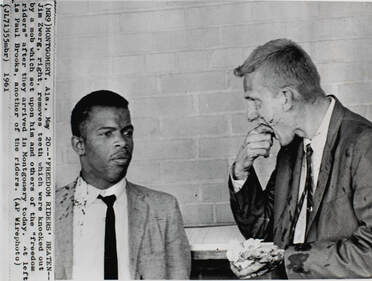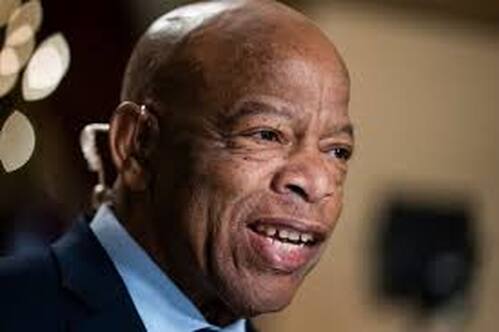 As promised, here is the first installment: a “snippet” of life to glean hope and inspiration. I begin with John Lewis, the man who inspired this blog series. I was on my parent’s bed. I couldn’t have been older than 11 or 12. The windows were dark, my father was barely awake beside me, the old Philco TV flickered black and white footage from the PBS documentary on the Civil Rights Era, Eyes on the Prize. The first episode I had watched by accident, again beside my half awake father. What I saw viscerally changed me: Emmet Till’s mutilated face. A week later I returned to the series, not for a horror show, but seeking some sort of understanding. What I found was a young, bold man, the Rev. John Lewis. I watched the footage of the Freedom Rides, learned of the angry crowd that greeted Rev. Lewis in Montgomery, the crowd that beat and bloodied him. How did he possess that kind of courage? He answered my earnest question many times throughout his life in interviews and through his public service. The answer is fairly simple: faith. John Lewis began preaching at age 15. His faith propelled him into the heart of the civil rights movement shortly after. At 23 during the March on Washington he spoke from the steps of the Lincoln Memorial as the head of SNCC (Student Nonviolent Coordinating Committee). There, he boldly demanded justice. His fellow Freedom Rider, Jim Zwerg, described John as the one whose faith steadied everyone else: "You knew if you were going to stand with John on a bus platform, John wasn’t going to run. He was going to stand there with you.” This steady, undeterred faith led John from Freedom Rides to the floor of Congress where he fought unrelentingly for justice through gun reform, LGTBQ+ rights, voter protection, education equality and more. John Lewis’ faith was a steady courage fed by worldly hope. He often reminded people that when fighting for justice there would be setbacks, but you had to keep showing up, you had to be consistent. With this dogged persistence you would get there. Hope was not a sentiment to him; it was a discipline for political change. We are on the eve of a referendum in which America will decide who America is: racist or equal, inclusive or exclusive, cruel or kind, just or unjust. John Lewis reminds us that if we are to change the world, we can’t just vote and forget. We must be dogged, not episodic; hopeful, not angry. Above all, we must be grounded in a faith that sustains disciplined hope.
0 Comments
|
Categories |

 RSS Feed
RSS Feed